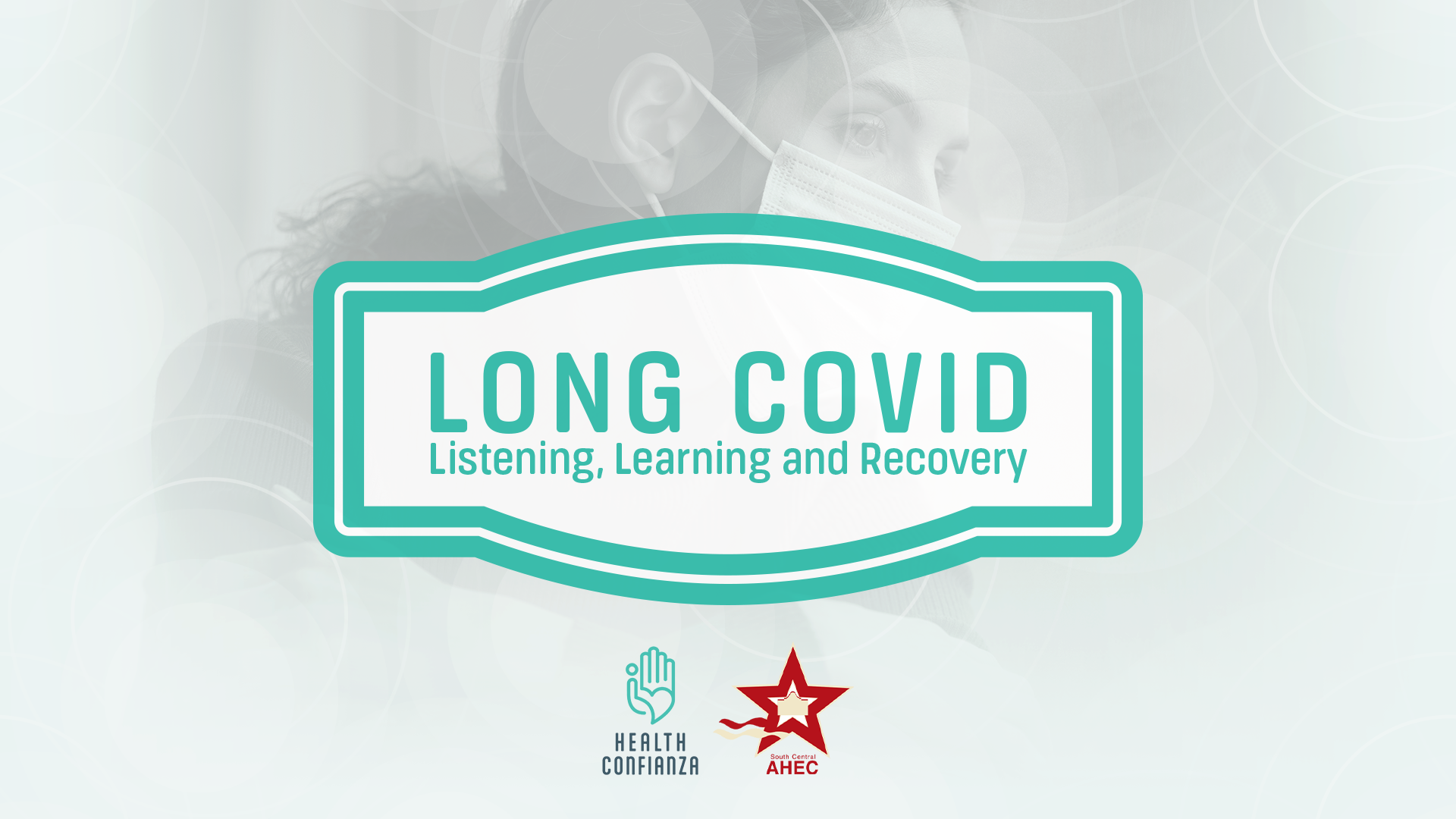
Since the first public recognition of the long-term effects of COVID-19 in 2020, our global health community has worked to understand the symptoms of long Covid and why the condition presents differently from person to person.
With this in mind, South Central AHEC (Area Health Education Center), the Center for Research to Advance Community Health (ReACH), and Health Confianza have created “Long Covid – Listening, Learning and Recovery,” a short video learning series coupled with an evolving set of resources developed with guidance from public health workers and providers. We hope these resources — which include videos, documents and links to articles and podcasts — are helpful to health professionals and community members throughout South Texas.
- What is Long COVID?
Long COVID is defined as the health issues that continue or emerge after the initial COVID infection, and that persist for four or more weeks after the initial infection.
- Symptoms
Long COVID is a multi-system, multi-dimensional illness that can affect a number of organs in the body. As a result, survivors of COVID-19-related critical illness are at risk of acute respiratory distress syndrome, sepsis, and chronic critical illness.
Some of the most burdensome symptoms outlined by people with long Covid are the following:
Autonomic Dysfunction: Dizziness, fast heart rate, shortness of breath, upset stomach, or other changes in body functions that happen automatically
Cognitive Dysfunction: Brain fog, trouble thinking clearly, memory changes, slowed attention, and other symptoms related to brain function
Exercise Intolerance and Fatigue: Exhaustion or low energy that interferes with daily activities
Sleep Disturbances: Changes in sleep patterns or ability to sleep
Viral Persistence: When the virus that causes COVID-19 stays in the body and causes damage to organs or the immune system to not function properly.Sources: RecoverCovid.org and The Lancet
Deep Dive on Symptoms:
- The Lancet: Post-acute sequelae of COVID-19: Understanding and addressing the burden of multisystem manifestations
- The BMJ: Long covid—an update for primary care
- The BMJ: Visual Summary
- Diabetes and Long COVID
On its Diabetes Discoveries & Practice Blog, The National Institutes of Health is sharing what we understand so far about the link between diabetes and COVID-19, and offers a clinician’s tips for caring for patients with diabetes who have Covid-19.
Tips for Health Providers:
- Ask patients about symptoms they might not usually talk to provider about, for example, exercise intolerance or brain fog.
- Tell patients to keep up their physical activity, manage sleep and nutrition as much as they can. For patients with exercise intolerance, help them gradually increase their ability to exercise.
- Consider drug interactions that may be harmful or counter-productive to Long covid treatment. The NIH has COVID-19 treatment guidelines. The CDC has guidance for clinical care of COVID-19 and evaluating and treating post-COVID conditions. In addition, the American Academy of Physical Medicine and Rehabilitation has long COVID guidance statements and other resources for health care professionals.
For more information, visit the blog: Research on COVID-19 and Diabetes Sets the Stage for Care
- Post-COVID-19 Recovery Clinic
UT Health San Antonio’s Post-Covid-19 Recovery Clinic
The U.S. Department of Health and Human Services awarded a five-year, $5 million grant to UT Health’s San Antonio’s Post-Covid19 Recovery Clinic to expand access to care for individuals with long Covid. The clinic, which is housed at the university, is in partnership with University Health. The clinic is one of 17 national adult RECOVER cohort sites (see more on RECOVERCovid.org below) and the only site in Texas.
What to know before referring the Post-Covid19 Recovery Clinic to clients or patients:
- Depending on health insurance, a patient may be required to receive a long Covid diagnosis from their primary health provider before making an appointment at the Post-Covid19 Recovery Clinic. Right now, only those with PPO medical plan may self-refer to the clinic.
- Demand may be high for appointments at the clinic, so patients may have a wait.
- Once becoming a patient at a long Covid clinic, patients may be given the opportunity to participate in clinical trials and cutting-edge programs.
- Learning Series on Long COVID
UT Health San Antonio’s ECHO (Extension for Community Healthcare Outcomes)
ECHO is an online workforce training model that brings providers and experts to health workers in underserved, remote and rural communities to increase their knowledge in a specific health care area.
In 2023, Health Confianza, a health literacy initiative, delivered the ECHO series “Listening to Long COVID” that included six sessions on topics including: Healing and Arts; Integrative Health Approaches to Long Covid Management; and The Mental Health Impact of Long Covid and Approaches for Care.To view the entire Long COVID online learning series, click here.
- RECOVERCovid.org
The National Institutes of Health’s RECOVER (Research Covid to Enhance Recovery) Initiative brings together health providers, researchers, patients and caregivers with the goal of improving recovery for those living with Long COVID. The initiative’s site, RECOVERcovid.org, offers information about long COVID research, news and events.
- Deep Dive - Long COVID Resources
If you are a health provider or Community Health Worker interested in learning the latest on long COVID, below is a list of academic papers and guidelines.
Guidelines
Prevalence
Symptoms
- The Lancet: Post-acute sequelae of COVID-19: Understanding and addressing the burden of multisystem manifestations
- The BMJ: Long covid—an update for primary care
- The BMJ: Visual Summary
Diagnostics
- Long-COVID signatures identified in huge analysis of blood proteins
- Royal Society: What do we know about Long Covid
- Science & Medicine: Long COVID and the road to recovery
Rural Health
Covid-19 vs. FluPrevention
Theories of Causes
- Downloadable Flyers
For Community
- Long Covid is Real – English and Spanish flyer
- Living with Long Covid? Know the Facts
- Convive Con Covid Prolongada? Conozca Los Datos
For Health Providers and Community Health Workers
The Long Covid: Listening Learning and Recovery Video Series
As many as 23 million Americans are afflicted with long Covid. We created this series — Long Covid – Listening, Learning and Recovery — to explore the journey of people with long Covid and their caregivers as they seek support from the healthcare community for a difficult-to-understand illness with symptoms that vary from person to person.
In this video we meet Chris who is dealing with debilitating long Covid after hospitalization, where he was placed in an induced coma and re-learned to walk. His story underscores the essential role health providers play in addressing the mental and physical needs of a person affected by long Covid.
In this video, Eddie speaks about how receiving treatment for Covid may have exacerbated other health issues, including diabetes. Eddie’s story is a good reminder that long Covid may make existing chronic diseases like diabetes worse.
In this video we meet Eva who is suffering from long-term psoriasis after a long Covid infection. In Eva’s story we learn about the constellation of symptoms that can follow long Covid, including the emotional toll it takes on an individual. Her story also highlights the importance of a support system in recovery.
In this video we meet Rosario who has dealt with various physical and mental health issues related to long Covid. After feeling dismissed by providers early on, she adopted an attitude of self-reliance. Her story reminds us of the importance of asking questions, persistence, and hope
In this video we meet Sandra. Her husband, Eddie, experienced complications from long Covid, including pneumonia and worsening diabetes. Sandra’s feelings of helplessness regarding her husband’s health are common among caregivers.
In this video we hear from Teresita whose wife had a life-threatening experience with long Covid. From Teresita, we learn the importance of validating the individual experiences of people with long Covid and their caregivers.


